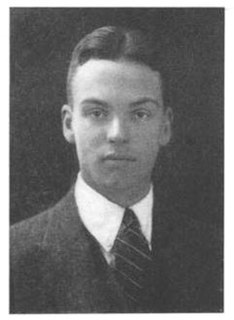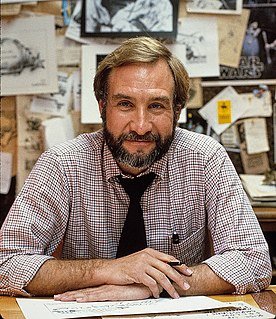A Quote by Robert M. Hutchins
Education is not to reform students or amuse them or to make them expert technicians. It is to unsettle their minds, widen their horizons, inflame their intellects, teach them to think straight, if possible.
Related Quotes
My view of university training is to unsettle the minds of young men, to widen their horizons, to inflame their intellects. It is not a hardening, or settling process. Education is not to teach men facts, theories, or laws; it is not to reform them, or amuse them, or to make them expert technicians in any field; it is to teach them to think, to think straight if possible; but to think always for themselves.
Great law schools like Northwestern are here to expand the minds of their students, to allow them to achieve their personal goals, to enable them to contribute, to give back in ways that they could not without the education they receive here, and to help them make the greatest country in the world just a little more accessible, a little fairer.
When you want to teach children to think, you begin by treating them seriously when they are little, giving them responsibilities, talking to them candidly, providing privacy and solitude for them, and making them readers and thinkers of significant thoughts from the beginning. That’s if you want to teach them to think.
Next, to make them expert in the usefullest points of grammar; and withal to season them and win them early to the love of virtue and true labour, ere any flattering seducement or vain principle seize them wandering, some easy and delightful book of education would be read to them; whereof the Greeks have store, as Cebes, Plutarch, and other Socratic discourses.
The true end of education is not only to make the young learned, but to make them love learning; not only to make them industrious, but to make them love industry; not only to make them virtuous, but to make them love virtue; not only to make them just, but to make them hunger and thirst after justice.
Teachers can be a living example to their students. Not that teachers should look for students to idealize them. One who is worth idealizing does not care whether others idealize them or not. Everyone needs to see that you not only teach human values but you live them. It is unavoidable sometimes you will be idealized -- it is better for children to have a role model, or goal, because then the worshipful quality in them can dawn.
The education of young citizens ought to form them to good manners, to accustom them to labor, to inspire them with a love of order, and to impress them with respect for. lawful authority. Religion is the only solid basis of good morals; therefore education should teach the precepts of religion, and the duties of man towards God.
There are students whose religious upbringing is going to make them feel uncomfortable in a class where certain kinds of secular ideas are presented. There are students whose ideas about history or sexuality are going to be similarly challenged to question, to affirm or to change those ideas. That doesn't mean they shouldn't be exposed to them; that's why they're at school. That's why they come to university: to be taught how to think well and critically about material that they're being presented with. But it's the teacher who is certified to teach them how to do that.





































